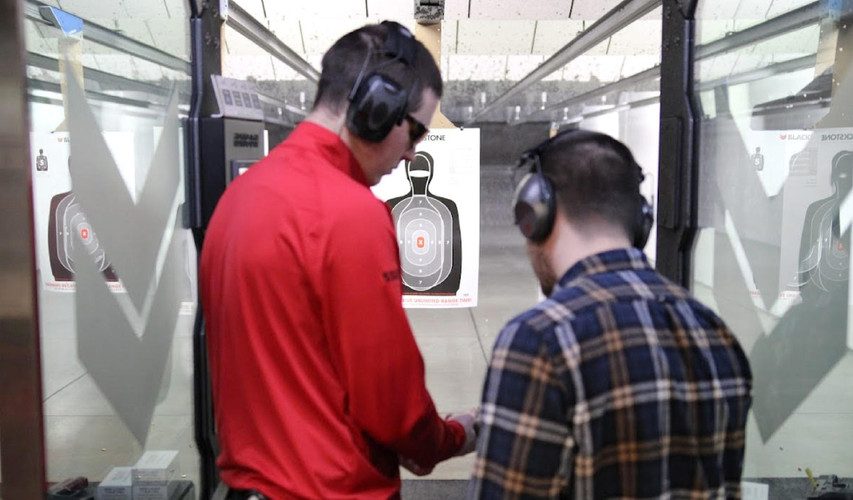Navigating North Carolina Concealed Carry Laws: What You Need to Know
Posted by Blackstone Shooting Sports on Oct 23rd 2023
Navigating North Carolina Concealed Carry Laws: What You Need to Know
When it comes to firearms and self-defense, understanding the laws in your state is crucial for responsible gun ownership. North Carolina is no exception, and its concealed carry laws can be complex. In this blog post, we’ll explore North Carolina concealed carry laws, helping you grasp the key regulations and requirements if you’re considering obtaining a concealed carry permit in the Tar Heel State.
North Carolina Concealed Carry Permit Overview
In North Carolina, the concealed carry of handguns is regulated by the North Carolina Firearms Laws (N.C. Gen. Stat. §§ 14-415.10 through 14-415.23). To carry a concealed handgun legally, residents must obtain a concealed carry permit, while non-residents can typically carry under certain conditions recognized by North Carolina law.
Eligibility Requirements
Before applying for a concealed carry permit in North Carolina, you must meet specific eligibility criteria. Here are some of the key requirements:
1. Age:
Applicants must be at least 21 years old.
2. Residency:
You must be a North Carolina resident or a non-resident who meets specific criteria (e.g., active-duty military stationed in North Carolina).
3. Criminal Background:
You must not have felony convictions or certain misdemeanor convictions, such as domestic violence-related offenses.
4. Mental Health:
You must not have been declared mentally incompetent or involuntarily committed to a mental institution.
5. Citizenship:
You must be a U.S. citizen or lawful permanent resident.
The Application Process
Once you meet the eligibility criteria, you can begin the concealed carry permit application process. Here’s a general overview of the steps involved:
1. Complete a Firearms Safety Course:
North Carolina requires applicants to complete an approved firearms safety course. This course covers firearm safety, marksmanship, and the legal aspects of concealed carry.
2. Gather Required Documents:
You’ll need to provide a valid ID, proof of residency, proof of firearms safety course completion, and any necessary fees.
3. Submit Your Application:
Visit your local sheriff’s office to submit your application. You’ll be fingerprinted and photographed as part of the process.
4. Wait for Approval:
The sheriff’s office will conduct a background check, and you’ll receive notification of approval or denial within a specific timeframe.
5. Receive Your Permit:
If approved, you’ll receive your North Carolina concealed carry permit, which is typically valid for five years.
North Carolina Concealed Carry Restrictions
While having a concealed carry permit allows you to carry a concealed handgun in North Carolina, there are certain restrictions and responsibilities to keep in mind:
1. Concealed Means Concealed:
Your firearm must remain completely concealed from view. Failing to do so can result in legal consequences.
2. Prohibited Locations:
There are places where carrying a concealed firearm is prohibited, including schools, government buildings, courthouses, and private property with posted signage.
3. Alcohol and Drugs:
It is illegal to carry a concealed firearm while under the influence of alcohol or drugs.
4. Use of Force:
Understanding the laws regarding the use of force in self-defense is essential. North Carolina follows the “stand your ground” principle, but deadly force should be used only when there’s a reasonable belief of imminent harm.
Benefits of a Concealed Carry Permit
Obtaining a North Carolina concealed carry permit comes with several benefits for responsible gun owners:
1. Self-Defense:
Carrying a concealed firearm can provide an added layer of personal security and self-defense when faced with a threat.
2. Reciprocity:
North Carolina has reciprocity agreements with many other states, allowing permit holders to carry concealed firearms in those states as well.
3. Streamlined Firearm Purchases:
Having a concealed carry permit can expedite the process of purchasing firearms in North Carolina, as it serves as an instant background check.
4. Legal Protection:
Concealed carry permit holders are typically better informed about state firearm laws and regulations, reducing the risk of unintentional violations.
Navigating North Carolina concealed carry laws may seem complex, but with the right knowledge and adherence to the regulations, responsible gun ownership is attainable. Obtaining a concealed carry permit and staying informed about the laws and restrictions is crucial for anyone who wishes to exercise their Second Amendment rights while ensuring public safety.
Always consult the latest state laws and seek legal advice if you have specific questions or concerns about concealed carry in North Carolina. By doing so, you can responsibly exercise your right to bear arms while respecting the laws that govern the safe and lawful use of firearms in the Tar Heel State.

